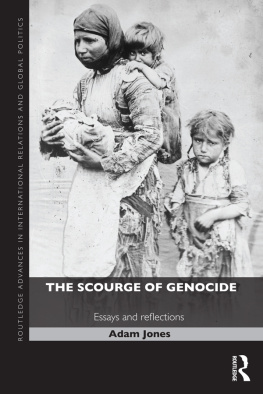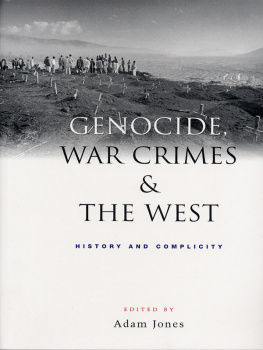This edition is published by PICKLE PARTNERS PUBLISHINGwww.picklepartnerspublishing.com
To join our mailing list for new titles or for issues with our books picklepublishing@gmail.com
Or on Facebook
Text originally published in 2012 under the same title.
Pickle Partners Publishing 2014, all rights reserved. No part of this publication may be reproduced, stored in a retrieval system or transmitted by any means, electrical, mechanical or otherwise without the written permission of the copyright holder.
Publishers Note
Although in most cases we have retained the Authors original spelling and grammar to authentically reproduce the work of the Author and the original intent of such material, some additional notes and clarifications have been added for the modern readers benefit.
We have also made every effort to include all maps and illustrations of the original edition the limitations of formatting do not allow of including larger maps, we will upload as many of these maps as possible.
THE THIRD REICHS MACROECONOMIC POLICIES: ENABLERS OF GENOCIDE
By
Major Adam W. Grein II
CHAPTER 1 INTRODUCTION
The Jews domination in the state seems so assured that now not only can he call himself a Jew again, but he ruthlessly admits his ultimate national and political designs. A section of his race openly owns itself to be a foreign people, yet even here they lie. For while the Zionists try to make the rest of the world believe that the national consciousness of the Jew finds its satisfaction in the creation of a Palestinian state, the Jews again slyly dupe the dumb Goyim. It doesnt even enter their heads to build up a Jewish state in Palestine for the purpose of living there; all they want is a central organization for their international world swindle, endowed with its own sovereign rights and removed from the intervention of other states: a haven for convicted scoundrels and a university for budding crooks. Adolph Hitler, Mein Kampf
Definitions
Macroeconomics : Is the study of economics in terms of whole systems especially with reference to general levels of output and income and to the interrelations among sectors of the economy. {1}
Macroeconomic Policy : Government policy aimed at the aggregate economy, usually to promote the macro goals of full employment, stability, and growth. Common macroeconomic policies are fiscal and monetary. {2}
Background
By 1934, the German economy, although not at full strength, was rebounding from the Great Depression and the credit crisis of 1931. There were additional signs that consumerism was picking-up since sales tax receipts were showing gains and more Germans were returning to the workforce than in years past. {3} The general mood was that Nazi macroeconomic policies were effective and the work of Nazi leader, Adolf Hitler, and his Minister of Finance, Hjalmar Schacht, were bringing the change Germans so desperately wanted. However, there was still apprehension in the air and Germans remained doubtful that total economic recovery would soon be realized.
Hitler had a vision of what Germany would become if left to those he saw as threats to the state. Fueled by hate and his desire for revenge over the Versailles Treaty, Hitler began his radical movement toward racial purity and macroeconomic reforms. Although the Nazi party campaigned on a series of macroeconomic issues and argued for the advancement of German farmers and laborers, Hitler knew he had to provide people with radically new and innovative reforms in order to mobilize the nation to do his bidding. {4}
The reforms would speak to the German people and capture their attention in a way that had never been seen before. Under the auspices of National Socialism, Hitler would elevate the economic status of the working class and provide them with opportunities once only reserved for the upper-middle class and social elite of German society. With programs such as Strength Through Joy, German workers received unprecedented benefits and organizational change to the work place. {5} New laws went into effect to counterbalance the economic hardships felt by the poor and working. Change was rapid and winning the hearts and minds of the German people.
Not all change was positive for all Germans. For German-Jews, National Socialism was the end to Jewish assimilation in German society. Most Jews living in Germany saw themselves as Germans. Many of them had intermarried with non-Jewish Germans, had served in the military, and were civil service members. With National Socialism, they were systematically removed from positions of responsibility within the government and public life altogether. {6} Regardless of German-Jews contributions to German society, they were nevertheless believed to be the forces that would bring about economic destruction and communist domination. Therefore, according to Nazi ideology they must be removed at all cost.
Research Question and Methodology
The expressed purpose of this research is to provide military and civilian leaders with an understanding of how macroeconomic policies were leveraged against German and European Jewry. This thesis will explore the primary question: Can macroeconomic policies enable genocide? Two subsequent questions will also be answered: Did the Nazis effect the social change needed in order to carry out their policies for genocide?; What actions could have been taken to prevent the Nazis from achieving their macroeconomic goals? The end-state of this thesis is to develop a better understanding of how Nazi macroeconomic policies stimulated the German people to perpetrate the Holocaust. This thesis will also determine if we can apply Mass Atrocities Prevention and Response Operation economic planning guidance to understand what actions could have been taken to prevent the mass murder of European Jewry.
The primary methodology used for answering these questions is the use of primary source documents such as Nazi economic policies, party ideology and propaganda used to exercise their will over the nation. Second, this study will use the applicable work of scholars from other of fields, such as economics, history and psychology that directly relate to World War II and genocide specifically.







